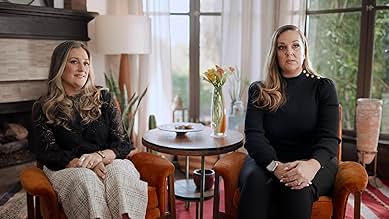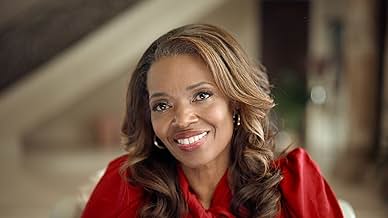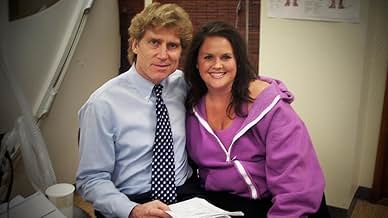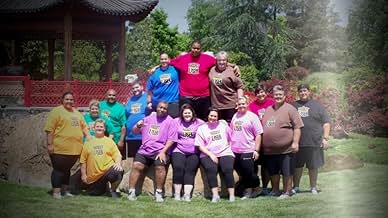अपनी भाषा में प्लॉट जोड़ेंTakes an inside look at the making of the hit reality TV competition, exploring the good, the bad, and the complicated.Takes an inside look at the making of the hit reality TV competition, exploring the good, the bad, and the complicated.Takes an inside look at the making of the hit reality TV competition, exploring the good, the bad, and the complicated.
एपिसोड ब्राउज़ करें
फ़ीचर्ड समीक्षाएं
This show which could or should have been interesting was just a bunch of click bait. It was a reality show about a reality show. People being mad tv did tv things is comical. I remember plenty of these people having a much different story after the show for years but now they have clearly lost their shine so they are coming back for more.
The documentary itself is not bad. It's entertaining and has some not bad stories.
However, what bothers me is the narrative: A bunch of whining Americans, who knew exactly what they were signing up to and got that exact thing. You couldn't say you didn't know! Ok for season 1 or 2, but all following seasons? You didn't watch it? What are you whining about? You wanted this! This is a TV show meant to create ratings and interest. You want to lose weight by yourself, go hire a trainer and a nutritionist and don't sign up to a TV show and then whine endlessly.
However, what bothers me is the narrative: A bunch of whining Americans, who knew exactly what they were signing up to and got that exact thing. You couldn't say you didn't know! Ok for season 1 or 2, but all following seasons? You didn't watch it? What are you whining about? You wanted this! This is a TV show meant to create ratings and interest. You want to lose weight by yourself, go hire a trainer and a nutritionist and don't sign up to a TV show and then whine endlessly.
While it was truly disheartening to see the producers (and some contestants) ignoring the physician's medical expertise, I felt like all of the contestants outside of season 1-2 had seen the show and knew what they were signing up for. The documentary also lacked a lot of important social context. At that time, bootcamp style workouts were all the rage. Crossfit was born out of that era. The doc really (and in my opinion unfairly) attacked the trainers for delivering the popular military-style workouts they were being paid to deliver at the time. They also left out that the show adapted over for time to address rising concerns like mental and emotional health. While we can see now how dangerous what they were doing was, I loved that show. It was inspirational to watch everyday folks achieve massive change and it proved that old fashioned diet and exercise can change your weight. If some folks cheated with pills, that is not the fault of the show. Bring back The Biggest Loser!
I think this is less a documentary and more a self-aggrandizing recount of a long-running reality television series. Even the (tacit and semi-overt) "admissions" regarding negative health outcomes for some participants just didn't justify the length of time required to watch this offering. I fear it just didn't break any new ground about this topic.
The biggest losers here, in my view, are the show's creators - profiting off televised humiliation and suffering while feigning selective memory. David Broome said, "It would be hard for me to comment on the sheriff investigation because I just don't remember it." His co-creator JD Roth strikes me as even more objectionable, with that ever-present smirk as he talks about masterminding the show the way a serial killer might reminisce about their victims.
This is a story of reckless TV executives chasing the next big thing, willing to go to any length to get it, yet unwilling to do the basic work of hiring the right professionals - dietitians, chefs, psychotherapists. They missed the chance to use this platform to teach a nation how to choose better food, cook easy healthy meals, work through unresolved emotional issues, and practice genuine self-care. As someone with a graduate degree in dietetics, I see obesity not only as a physical issue but also a deeply psychological one.
The documentary touched on manipulative and unethical challenges, the toll on contestants during and after filming, and the long-term damage, from slower metabolisms to chronic ailments. But it failed to widen the lens to the real backdrop: America's obesogenic environment, where unhealthy, ultra-processed foods are cheaper and more accessible than their healthier counterparts. These sugar- and fat-laden products are exactly what emotional eaters, or those chasing a dopamine hit, are drawn to.
I wish the documentary had gone deeper into how each former contestant ended up at their starting weight and what was going on in their inner world. I suspect the common thread would have been self-loathing and negative self-talk. Tracey Yukich put it best: "You need to cheer for yourself... The show didn't change my life. I changed my life. I did that."
This is a story of reckless TV executives chasing the next big thing, willing to go to any length to get it, yet unwilling to do the basic work of hiring the right professionals - dietitians, chefs, psychotherapists. They missed the chance to use this platform to teach a nation how to choose better food, cook easy healthy meals, work through unresolved emotional issues, and practice genuine self-care. As someone with a graduate degree in dietetics, I see obesity not only as a physical issue but also a deeply psychological one.
The documentary touched on manipulative and unethical challenges, the toll on contestants during and after filming, and the long-term damage, from slower metabolisms to chronic ailments. But it failed to widen the lens to the real backdrop: America's obesogenic environment, where unhealthy, ultra-processed foods are cheaper and more accessible than their healthier counterparts. These sugar- and fat-laden products are exactly what emotional eaters, or those chasing a dopamine hit, are drawn to.
I wish the documentary had gone deeper into how each former contestant ended up at their starting weight and what was going on in their inner world. I suspect the common thread would have been self-loathing and negative self-talk. Tracey Yukich put it best: "You need to cheer for yourself... The show didn't change my life. I changed my life. I did that."
टॉप पसंद
रेटिंग देने के लिए साइन-इन करें और वैयक्तिकृत सुझावों के लिए वॉचलिस्ट करें
विवरण
- चलने की अवधि
- 2 घं 4 मि(124 min)
- रंग
इस पेज में योगदान दें
किसी बदलाव का सुझाव दें या अनुपलब्ध कॉन्टेंट जोड़ें

































